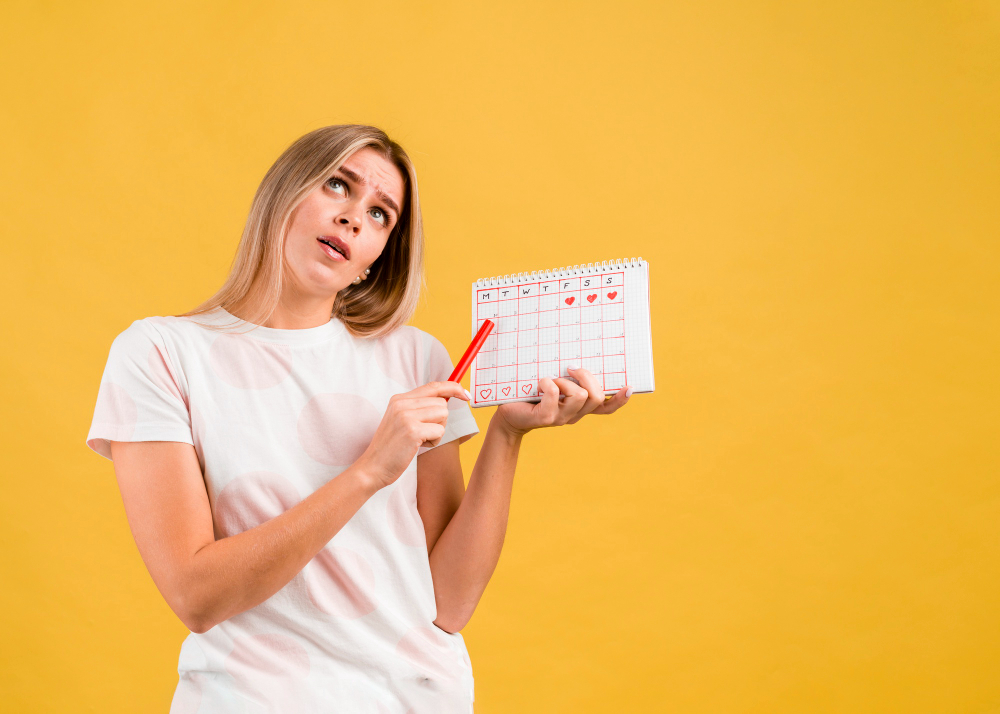Are you experiencing spotting three days after your period? Don’t worry, you’re not alone. Many women find themselves in the same situation and are searching for answers. In this article, we will explore the possible causes of spotting three days after your period and whether it’s something to be concerned about. Learn more about Spotting 3 Days After Period!
Spotting can occur for various reasons, including hormonal imbalances. Fluctuations in hormone levels can disrupt the normal menstrual cycle and lead to spotting. Another possible cause is ovulation. Some women experience light bleeding or spotting during ovulation, which typically occurs around 14 days after the start of their period.
Pregnancy is another factor to consider. Implantation bleeding, which occurs when a fertilized egg attaches to the uterine lining, can cause spotting around the time of your expected period. If you have been sexually active and suspect you might be pregnant, it’s worth taking a pregnancy test to rule out this possibility.
While spotting three days after your period can be normal, it’s important to pay attention to any other symptoms you may be experiencing. If the spotting is accompanied by severe pain, or unusual discharge, or lasts for an extended period, it’s advisable to consult a healthcare professional to rule out any underlying health conditions.

Remember, every woman’s body is unique, and what may be normal for one person may not be for another. By understanding the possible causes and seeking medical advice when necessary, you can gain peace of mind and ensure your overall well-being.
Why Is Your Period Spotting?
Spotting during your period can be a common occurrence, but understanding why it happens is important for your overall health and well-being.
Understanding the causes of spotting
There are several reasons why you may experience spotting during your period. Hormonal imbalances, such as fluctuations in estrogen and progesterone levels, can lead to irregular bleeding. Additionally, certain medications, such as birth control pills or anticoagulants, can also cause spotting. In some cases, spotting may be a sign of an underlying medical condition, such as polycystic ovary syndrome or uterine fibroids.
Addressing spotting after your period
If you are experiencing spotting after your period, there are steps you can take to address the issue. It is important to consult with your healthcare provider to rule out any underlying medical conditions. They may recommend adjusting your birth control method or hormone therapy. In some cases, lifestyle changes, such as reducing stress or maintaining a healthy weight, may also help regulate your menstrual cycle and reduce spotting.
How To Fix Spotting 3 Days After After Period?
Spotting after your period can be frustrating and inconvenient. Luckily, there are steps you can take to address this issue.
1. Maintain a healthy lifestyle
By eating a balanced diet, exercising regularly, and managing stress, you can help regulate your menstrual cycle and reduce the chances of spotting after your period.
2. Consider hormonal birth control
Using hormonal birth control methods, such as the pill or an IUD, can help regulate your hormones and prevent spotting between periods.
3. Visit your healthcare provider
If the spotting continues or becomes more frequent, it’s important to consult with a healthcare professional. They can evaluate your symptoms, conduct tests, and provide appropriate treatment options.
4. Keep track of your menstrual cycle
Maintaining a menstrual calendar can help identify patterns and potential triggers for spotting. This information can be useful when discussing your symptoms with your healthcare provider.
5. Avoid douching or using harsh products
These products can disrupt the natural balance of bacteria in the vagina and potentially lead to spotting. Stick to gentle, fragrance-free products for intimate hygiene.
Remember, spotting after your period is not uncommon, but if it persists or is accompanied by other concerning symptoms, it’s important to seek medical advice.
Common Reasons Why Spotting Occurs
Spotting can occur for a variety of reasons, and it is important to understand the common causes. One possible reason for spotting is hormonal imbalance, which can disrupt the normal menstrual cycle. This imbalance can be caused by factors such as stress, certain medications, or medical conditions like polycystic ovary syndrome (PCOS). Another common cause of spotting is the use of hormonal birth control methods, such as birth control pills or intrauterine devices (IUDs). These methods can sometimes cause breakthrough bleeding or spotting as a side effect. Additionally, spotting can occur due to certain infections or sexually transmitted diseases, such as chlamydia or gonorrhea. It is also possible for spotting to be a sign of a more serious underlying condition, such as uterine fibroids or cervical cancer. Therefore, if you experience spotting, it is important to consult with a healthcare professional to determine the cause and appropriate treatment.
What Should I Do About Spotting?
Spotting can be a cause for concern, but it is important to stay calm and take the necessary steps to address the issue. The first thing you should do is assess the severity and duration of the spotting. If it is light and only lasts for a day or two, it may not be a cause for immediate alarm. However, if the spotting is heavy or continues for an extended period of time, it is recommended to seek medical advice.
Consult a Healthcare Professional
It is advisable to schedule an appointment with your healthcare provider to discuss your symptoms and concerns. They will be able to evaluate your situation and provide appropriate guidance. In some cases, they may recommend further tests or examinations to determine the underlying cause of the spotting.
Monitor Your Symptoms
Keep track of any other symptoms you may be experiencing, such as pain or changes in your menstrual cycle. This information will be helpful for your healthcare provider in diagnosing the issue.
Remember, it is always better to be proactive when it comes to your health. Don’t hesitate to reach out to a professional for guidance and support.
Why Is Your Period Spotting 3 Days Later?
Spotting three days after your period can be a cause for concern, but it is not uncommon. There can be several reasons why this happens.
Hormonal Imbalance
One possible cause of spotting three days after your period is a hormonal imbalance. This can occur due to fluctuations in estrogen and progesterone levels, which can disrupt the normal menstrual cycle and lead to spotting.
Ovulation
Another reason for spotting three days after your period could be ovulation. Some women experience light bleeding or spotting during ovulation, which can occur around the middle of the menstrual cycle.
It is important to monitor the duration and intensity of the spotting. If it persists or is accompanied by other symptoms such as pain or unusual discharge, it is recommended to consult a healthcare professional for further evaluation.
Remember, every woman’s body is unique, and spotting after your period may not always be a cause for concern. However, if you have any doubts or worries, it is always best to seek medical advice for peace of mind.
How To Fix Spotting 3 Days After Period?
Spotting 3 days after your period can be concerning, but there are steps you can take to address this issue. Firstly, it’s important to determine the underlying cause of the spotting. It could be due to hormonal imbalances, such as an irregular menstrual cycle or fluctuations in estrogen and progesterone levels. In this case, maintaining a healthy lifestyle with regular exercise, a balanced diet, and stress management techniques can help regulate your hormones and reduce spotting.
If the spotting persists or is accompanied by other symptoms like pain or discomfort, it’s advisable to consult a healthcare professional. They can conduct a thorough examination and run tests to identify any underlying medical conditions that may be causing the spotting. Treatment options may include hormonal medications, birth control pills, or other interventions depending on the specific cause.
Remember, spotting after your period is not necessarily a cause for alarm, but it’s always best to seek medical advice to ensure your overall health and well-being.
Common Reasons Why Spotting Happens After Period
Spotting that occurs after your period can be a cause for concern, but it is often a normal occurrence for several common reasons. One possible reason for spotting after your period is hormonal changes. Fluctuations in hormone levels can disrupt the normal menstrual cycle and lead to spotting. Another common cause is the presence of uterine fibroids or polyps, which can cause irregular bleeding. In some cases, spotting after your period may be a sign of an underlying medical condition, such as endometriosis or pelvic inflammatory disease. It is also possible that the spotting is a result of a recent sexual activity or a minor injury to the cervix. If you are experiencing persistent or heavy spotting after your period, it is important to consult with a healthcare professional to determine the underlying cause and appropriate treatment.










